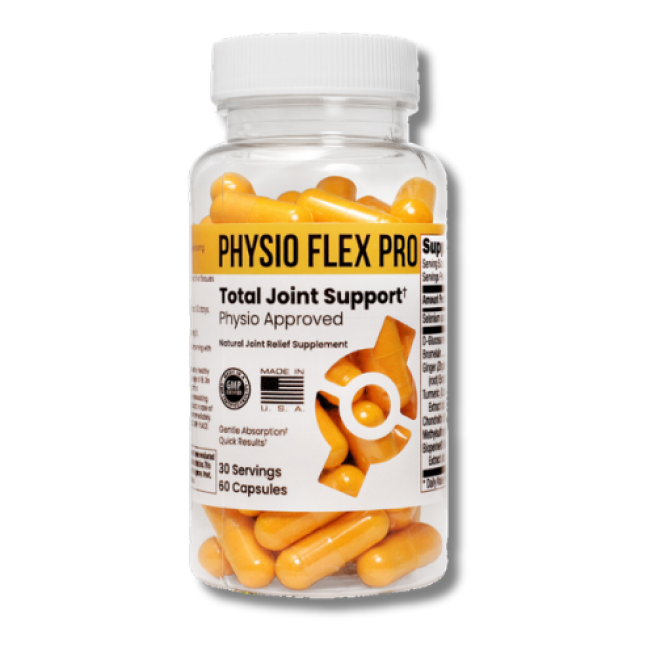Bromelain supplements, derived from the pineapple plant, have emerged as a popular choice for those seeking natural anti-inflammatory and digestive benefits.
In this article, we delve into the science and expert opinions behind bromelain supplements, addressing common pain points like efficacy, safety, and usage guidelines.
Our comprehensive breakdown offers a clear path to understanding how bromelain can naturally enhance your well-being.
Join us as we explore this nature-derived solution, guiding you towards a more informed decision on incorporating bromelain into your health regime.
What is Bromelain?

Bromelain is derived from the juices and stems of pineapples through a combination of proteolytic enzymes. Proteolytic enzymes have properties like inhibition of platelet aggregation, fibrinolytic activity, anti-inflammatory action, skin debridement, and malignant cell growth intervention.
Stem bromelain is considered to be the major protease enzyme evident in pineapple stem extract, while the major enzyme fraction evident in pineapple fruit juice is fruit bromelain.
While fruit bromelain is not commercially accessible despite being obtained by simple ultrafiltration from pineapple juice, stem bromelain is widely used in industry and medicine.
Health Benefits of Bromelain
Digestive Health
In cases of exocrine pancreatic insufficiency and other intestinal disorders, a 2010 review stated that bromelain has been successfully used as a digestive enzyme following pancreatectomy. Bromelain's digestive aid provides symptomatic improvements in stool frequency, pain, and flatulence through its combination with pancreatin and ox bile in lowering stool fat excretion in patients with pancreatic steatorrhea.
A study from the Scientific Dental Journal showed that bromelain provided effective bactericidal and inhibitory activity against Enterococcus faecalis, a species of bacteria found in the intestines. This condition is usually the cause of oral infections like infected root canals and periodontitis.
Anti-inflammatory Effects
Bromelain possesses anti-inflammatory effects, as stated in a review from the Pakistan Journal of Nutrition, wherein it can reduce cell surface receptors like hyaluronan receptor CD44, associated with induction of proinflammatory mediators and leukocyte migration. In animal models, Bromelain can also reduce primary effectors like CD4* T lymphocytes in inflammation.
A 2021 study showed that bromelain relieved neuropathic pain effectively by eliminating proinflammatory cytokines by anti-inflammatory agents or knock-out cytokine receptors and intrathecal injection of anti-inflammatory cytokines. It is proposed that bromelain's anti-inflammatory properties mediate its antinociceptive effect.
Pain Relief
Bromelain can function as a pain relief for muscle soreness and arthritis pain. A 2012 study showed that bromelain can treat knee osteoarthritis, as proven in 103 patients that showed a significant reduction in inflammation and pain.
When combined with other ingredients like trypsin and rutoside, bromelain can manage the internal derangement of the temporomandibular joint (TMJ) in a 2020 study. This was tested in 30 patients who showed improved mouth opening and chewing ability, reduction of jerky mandibular movements, joint noise, and pain.
Bromelain and papain in supplement forms showed prolonged beneficial carry-over effects to treat lumbar spine osteoarthritis (low back pain) in a 2020 study. Participants showed diminished pain scores in answering the questionnaire and when pain intensity was measured through a visual analog scale.
Bromelain in Medical Research
Recent studies continue to discover and prove the effectiveness of bromelain in the medical field while also considering its limitations for further research. The production and method of extraction are currently key limitation factors for successfully using bromelain as a potential anticancer agent in a recent study. The more the market expands, the more these methods are reduced, therefore anticipating the future of bromelain to focus on its anticancer activity.
A 2022 study showed that COVID-19 pathophysiology and its major stages are met with bromelain and curcumin intervention. Their anti-inflammatory capabilities can reduce proinflammatory mediators and suppress transcription factors. Researchers encourage future researchers in this study to create more extraction and inventive techniques to expand the bromelain market since it has only moderate adverse effects and minimal toxicity.
Bromelain is suggested for patients who experienced alveolar ridge preservation after tooth extraction in a study from the University of Siena. There was a reduction of pain and less swelling in patients older than 18 years old and diagnosed with decayed lower first molar. Methods of measuring facial swelling were the study's limitations.
A study from the Journal of the Science and Food Agriculture showed that bromelain production is expanding worldwide. More modern purification techniques like affinity chromatography, reverse micelle chromatography, and gel filtration have been developed. Additionally, ultrapure bromelain can be produced by recombinant DNA technology as an alternative strategy.
How to Use Bromelain Supplements
Bromelain is available in tablets or capsules, enteric-coated tablets or capsules, and powder. A dosage of 500-2000 mg of bromelain is recommended to take away from food three or more per day in a 2011 review.
A recent study showed that to boost bromelain's anti-inflammatory properties, it's suggested to take from 99.9 to 1200 mg/day wherein the supplementation time ranged from 3 to 16 weeks. For 1-16 weeks, it can range from 200 to 1050 mg/day. However, gastrointestinal adverse effects appeared but were considered to be well-tolerated.
In most cases, bromelain can be taken with meals as it can aid the digestion of dietary proteins. To protect the enzyme from degradation in the stomach's acidic environment, enteric-coated bromelain supplements are recommended to take. Take note to establish a consistent routine for steady levels of bromelain to remain in the body.
A 2010 review showed that individuals should only use bromelain under the supervision of a physician. This refers to those who take "blood thinners" like warfarin and aspirin and non-steroidal anti-inflammatory drugs like naproxen and ibuprofen. Caution must be applied when these medications are associated with herbs like garlic and ginkgo biloba, which can increase bleeding.
Side Effects and Safety Considerations
Common side effects of bromelain include:
- Diarrhea
- Vomiting
- Fatigue
- Swelling
- Difficulty breathing
Bromelain may increase the risk of bleeding during dental or surgery procedures due to its anticoagulant properties. Refraining from using bromelain for at least 2 weeks before dental work or scheduled surgeries is usually recommended.
Individuals who use enteric-coated bromelain when having stomach ulcers or acid reflux should be under a healthcare professional's guidance. A 2010 review suggested that it's not safe to use bromelain for people with liver or kidney disease and pregnant and nursing women.
Also, people allergic to papaya, carrot, birch, celery, and rye may have bromelain side effects similar to the common side effects they experience.
Choosing the Right Bromelain Supplement
It's crucial to follow specific criteria in selecting the right supplement. Determining a supplement's purity can be determined if it has undergone third-party testing to ensure an absence of contaminants.
Third-party testing follows Good Manufacturing Practices (GMP) and ensures transparency. Search for a particular enzyme activity information in a bromelain supplement to indicate its potency.
Milk Clotting Units (MCU) and Gelatin Digesting Units (GDU) usually measure this activity.
Aside from considering supplements from reputable companies, familiarize yourself with the supplement's utility by checking customer reviews to determine its pros and cons.
Certification of a supplement shows that the product label is accurate by including any health claims, ingredients, and dosage. This will ensure safety and provide a sense of trust to consumers.
Here are helpful tips for reading and understanding labels for supplements:
- Look for information on bromelain's source
- Consider the supplement's formulation
- Be mindful of the recommended dosages
- Examine the list of potential additional ingredients
- Seek third-party testing indications and certifications
- Always check the expiration date
FAQs about Bromelain Supplements
1: How quickly does bromelain take effect?
While individual experiences may vary, bromelain can quickly take effect for 30 minutes to an hour.
2: Can bromelain supplements replace digestive enzymes for people with chronic pancreatic insufficiency?
Yes, as it was proven in a 2021 study. Results showed that bromelain and papain could be alternatives to bovine and porcine pancreatic enzymes for pancreatic enzyme replacement therapy use as a method of support for exocrine pancreatic insufficiency.
3: Are there any food sources of bromelain besides supplements?
Since bromelain is derived from pineapple, it can be included in fresh pineapple smoothies, juices, certain marinades, and desserts containing pineapple. Eating fresh pineapple is a natural way to include Bromelain in your diet.
4: How does bromelain interact with other medications, such as blood thinners?
Bromelain contains mild anticoagulant properties, which can interfere with blood clotting and platelet aggregation. There's a potential increased risk of bleeding when taken with aspirin or warfarin.
5: Can bromelain supplements help with weight loss?
Yes, it was shown in a 2022 study that bromelain can improve insulin sensitivity and exhibit anti-inflammatory effects in obese diabetic patients.
6: Is bromelain safe for long-term use?
Yes. Even after prolonged use, bromelain has no major side effects as it's well-absorbed in the body after oral administration. This is based on a study from the National Library of Medicine.
7. How much bromelain is in pineapple?
One trial found that pineapple juice had a bromelain concentration of 0.43%, which is considered relatively high.
8. How long does it take for bromelain to work?
This depends on what you are looking to use bromelain for. Bromelain takes a different amount of time to work for different conditions. We answered the question in detail here.
Conclusion
In conclusion, bromelain, as naturally derived from pineapple, has protein-digesting enzymes beneficial for digestive support. It imposes anti-inflammatory properties and pain relief for conditions like osteoarthritis.
Recent and future studies mainly focus on bromelain's ability to treat underlying cancer conditions as an anticancer agent. Despite bromelain having minimal adverse effects, be wary of possible allergic reactions and digestive issues.
In choosing the right bromelain supplements, look for its purity, potency, brand reputation, third-party testing, and certifications to consider it reliable.
Before starting a supplement, it's crucial to consult a healthcare professional for personalized guidance aligned with your existing conditions, especially if you're pregnant or have allergic reactions.





